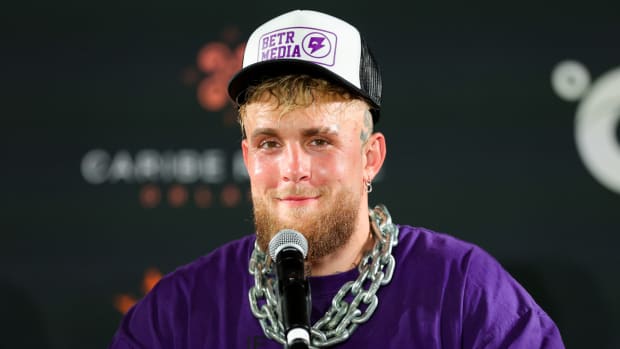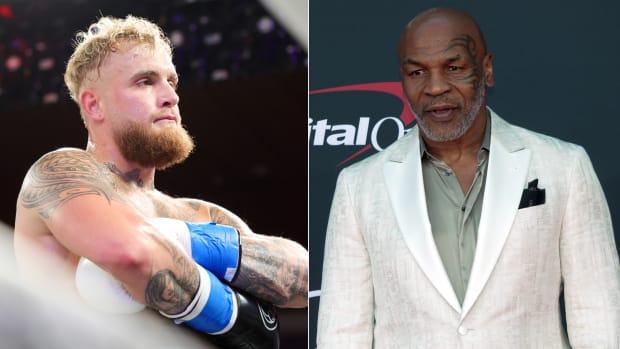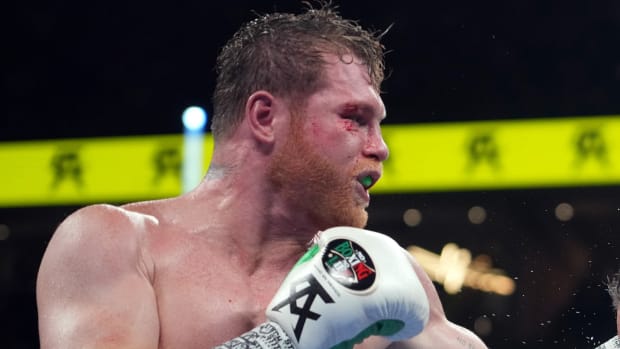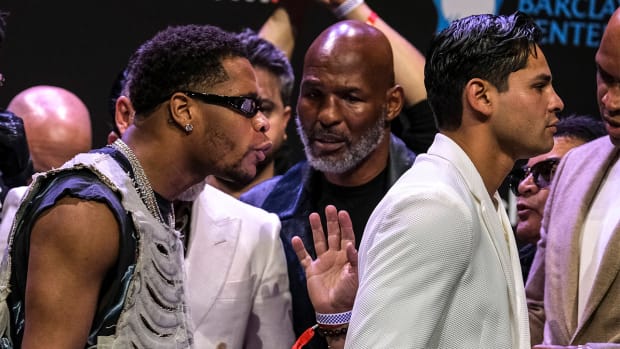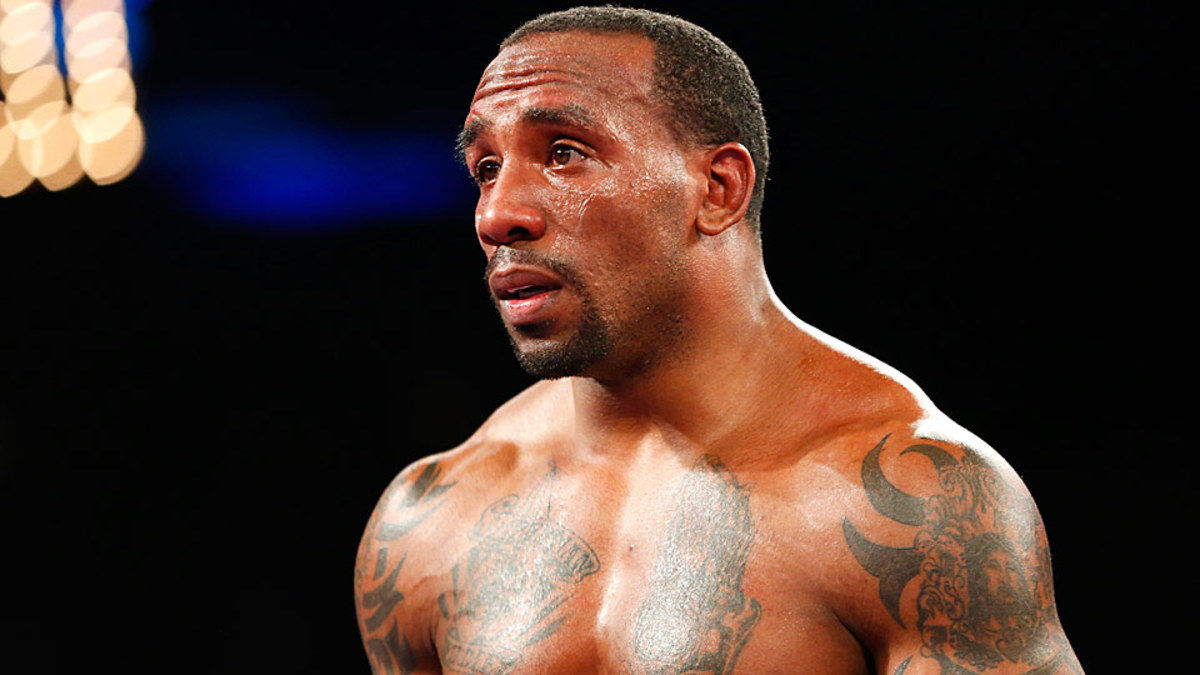
More than just punching bag, Derrick Findley refuses to go down easily
NEW YORK – Here's a name for you: Derrick Findley. Heard of him? Probably not.
Most people don’t know Findley. There's no real reason to. He’s a middleweight who moonlights as a super middleweight with a pedestrian record (23-13-1) anchored to him. He has never fought for a world title and is rarely on TV. To date, his most notable win is over Ronald Hearns, the son of former five-division champion Tommy Hearns, who Findley once stopped in the second round.
Yet Findley’s resume includes many of the top young fighters in and around his weight class: Andre Ward, Matt Korobov, J’Leon Love. When Top Rank needed an opponent for rising prospect Jesse Hart, they called Findley. When Main Events needed someone for an NBC-televised matchup with Curtis Stevens, they, too, called Findley.
In boxing, Findley is something of a sought-after commodity. He’s tough, but not considered too tough. He’s rugged and fights a fan friendly style. And — most importantly — he doesn’t get stopped. Of Findley’s 13 losses, only one ended before the final bell. If a promoter needs an opponent guaranteed to take a young fighter to a decision, they know who to call.
Derrick Findley, chin for hire.
“He brings it every fight,” said Main Events matchmaker Jolene Mizzone. “He’s not going into a fight to take a beating. He gets in the ring because he loves the challenge.”
Instead of thriving, boxing continues to be its own worst enemy
Said Top Rank vice president Carl Moretti, “You know he is going to give you rounds. And he’s not going to do it by running. He’s a physical guy. When one of our guys fights Findley, they know they can’t let up on training. They know they have to be ready to go the distance. There aren’t a lot of guys like that. I wish every division had a Derrick Findley.”
Findley smiles at the description. “It’s my life,” Findley said. Of course, he doesn’t particularly like it. Like every boxer, Findley dreamed of become a world champion. He grew up in the south side of Chicago, fighting in the streets “for a lot of stupid reasons.” He took up boxing as a teenager and went on to fight 120 times as an amateur. He turned pro in 2004 and immediately began eyeballing all the big names in the 160-pound division.
But because Findley wasn’t a decorated amateur, he didn’t attract interest from any of the top promoters. He signed with a small company early and eventually became a free agent. While many prospects fight on non-televised undercards in New York, Atlantic City and Las Vegas, Findley’s early years were spent in Merrillville, Indiana and Cicero, Illinois. He routinely took fights on a couple of weeks notice and never had the resources to fully commit to the sport.
“I had to do things by myself,” Findley said. “It made things very hard for me.”
These days, it still is. Findley is self-trained. He often picks up a cut man at whatever venue he is at. His fiance, Marquita Blue, serves as a manager and cornerman. When he’s called, he fights.
Last July, Findley took a fight against journeymen Phil Williams on a few weeks notice. He battled Williams to a draw. Less than a month later he was back in the ring, against hard-hitting prospect Gilberto Sanchez. Blue says they were told Sanchez was 6-foot-2. She swears he was closer to 6-5. The 5-5 Findley was shut out on the scorecards but, as usual, he went the distance. It's the only fight in Sanchez's last five that has.
"I wish every division had a Derrick Findley."
It’s a living, albeit not a very lucrative one. The most Findley has made for a fight is $15,000. He says he averages $10,000 a fight. He supplements his boxing income by serving as a sparring partner — he has sparred with Gennady Golovkin and Sergio Martinez — and working as a security guard at a mall in Gary, Indiana. He trains before and after shifts, sometimes two or three times a day.
“He’s a workaholic,” Blue said. “Whenever he feels like he has food sitting in his stomach, he goes out for a run.”
There’s another reason promoters love Findley: He’s professional. He has never missed weight and is usually the first one on a card to submit the proper paperwork and medical information to the promoter.
“It’s very important to me to keep a good reputation,” Findley said. “It’s not good to get a bad rep in boxing. I try to keep everything in order.”
On Wednesday, Findley will find himself in a familiar situation. He has been brought in by promoter Lou DiBella to face Lamar Russ, a 27-year old up-and-comer DiBella is rehabilitating after an HBO-televised decision defeat to Matthew Macklin last year. Findley is expected to be, well, Findley. For $5,000, he is expected to give Russ eight tough rounds and lose by decision.
“I know the situation,” Findley said. “I have to knock a guy out just to get a draw. I’m going to have to kill this dude if I want a win.”
At 30, Findley still believes he can be more than just a gatekeeper, more than just the tough test young fighters have to pass. Blue has a plan for Findley to reinvest in his career.
“If no one is going to back him, he has to back himself,” Blue said.
One big win, Findley believes, will put him on a path that can still lead to a world title. Until then, Findley has a message for the would-be contenders put in front of him: Take me lightly at your own risk.
“I’m one of those guys [who] will test you,” Findley said. “But I’m also one of the tests that you might not pass.”
